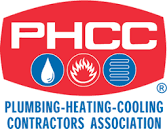Refrigerant is the main ingredient of our home’s air conditioning system. Without it, the system functions no differently than a fan moving room temperature air endlessly throughout one’s home. In the early 20th century, electronic refrigerant systems became more commonplace. Their introduction into the home cooling market revolutionized the way we live. Places deemed too warm for enjoyable living could now be called home. From 1930 into the 1990s, the Sunbelt states saw a six percent increase in their population size compared to the rest of the United States. The impact air conditioning has had on the world cannot be understated.
As much as we have all come to depend on our AC, it is important to remember your AC will struggle or be unable to offer those magical cooling properties if it becomes low on refrigerant. Here are five ways to tell if this happens.
Your AC Bill is Higher Than Usual
One significant way to determine if you have an AC issue is through an abnormally high electric bill. Your home’s AC system is one of the most significant drivers of that bill. If something is wrong with the system, this is a good indicator. However, it is important to remember that it may not automatically mean something is wrong with the refrigerant because your bill is high. A few other underlying issues may need to be addressed with your AC system, such as a clogged filter or aging system. Evaluate these minor issues first and if you are uncertain, consider contacting a professional.
Your Vents are not Blowing Cool Air / Your Home is Unable to Reach the Desired Coolness
Your AC unit works by blowing warm air over evaporator coils that contain refrigerant. As this air is blown over these coils, the refrigerant absorbs the warm temperature and expels it outside, allowing cooled air to flow freely throughout your home. If refrigerant levels are low, your home may not be capable of sufficiently cooling the air resulting in abnormally warm temperatures.
Ice or Frost is Forming on Your AC Unit
Evaporation coils will become cooler than they are designed to when an AC unit’s refrigerant amount is depleted. The cooling coils leave a noticeable amount of ice or frost, a glaring sign of a refrigerant-related issue if this type of formation occurs during the summer.
Water Leaking Around the Unit
A puddle of water will form around the base of your AC unit when the ice or frost melts. Water around your unit or any other component of your AC system is never a good sign and likely an issue that needs addressing.
Hissing Sounds
Refrigerant is almost always pressurized. If there is a leak in your system, it could be due to a puncture. As this pressurized gas escapes the puncture, you should be able to hear a hissing or bubbling sound. Hearing such a noise from your AC system is likely a sign of a potential leak.
While refrigerant has revolutionized the way we live and work, it is a dangerous chemical to be treated with caution and respect. It is always advisable to seek expert assistance if you believe refrigerant is the culprit to your home’s lack of cooling or other issues. There are dangers associated when working with these chemicals. Because of these dangers, strict environmental regulations must be adhered to when working with them. Play it cool and consider calling a professional today: (812) 683-0675.
Why is my furnace blowing cold air?
Signs it’s time to upgrade your home’s heating unit
Why is the red light on my furnace blinking?
Winter Fire Safety Tips
HVAC System Warranty — Why You Need One
What to expect from your HVAC system when buying a new home.
Winter is Almost Over! Should I Wait Until Next Winter to Buy a New Furnace?
What are the benefits of cleaning condenser coils?
Does the type of ductwork matter in your energy bills?
Are homes with pets breathing healthy air?



